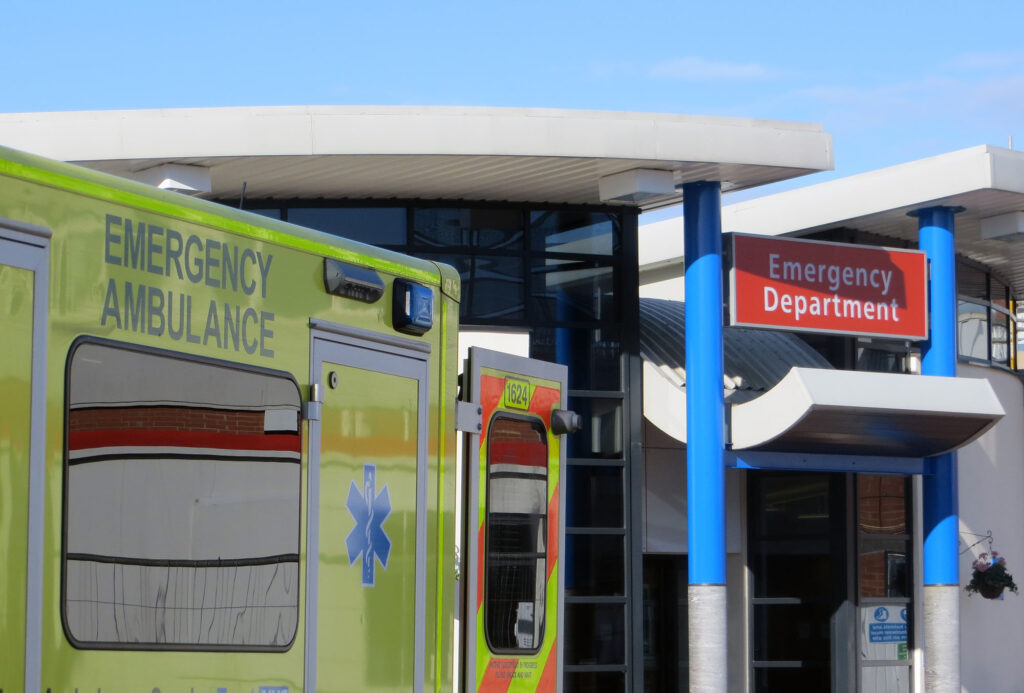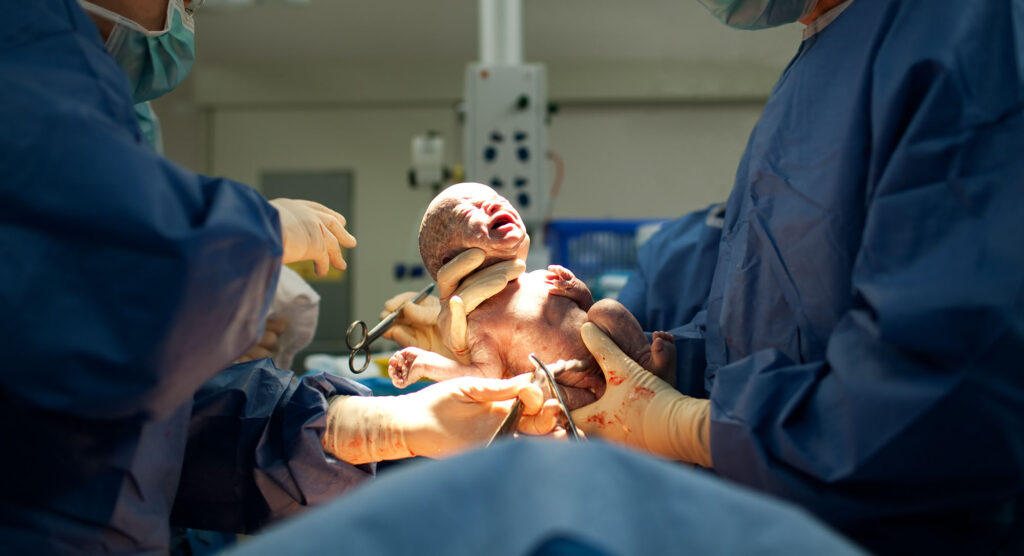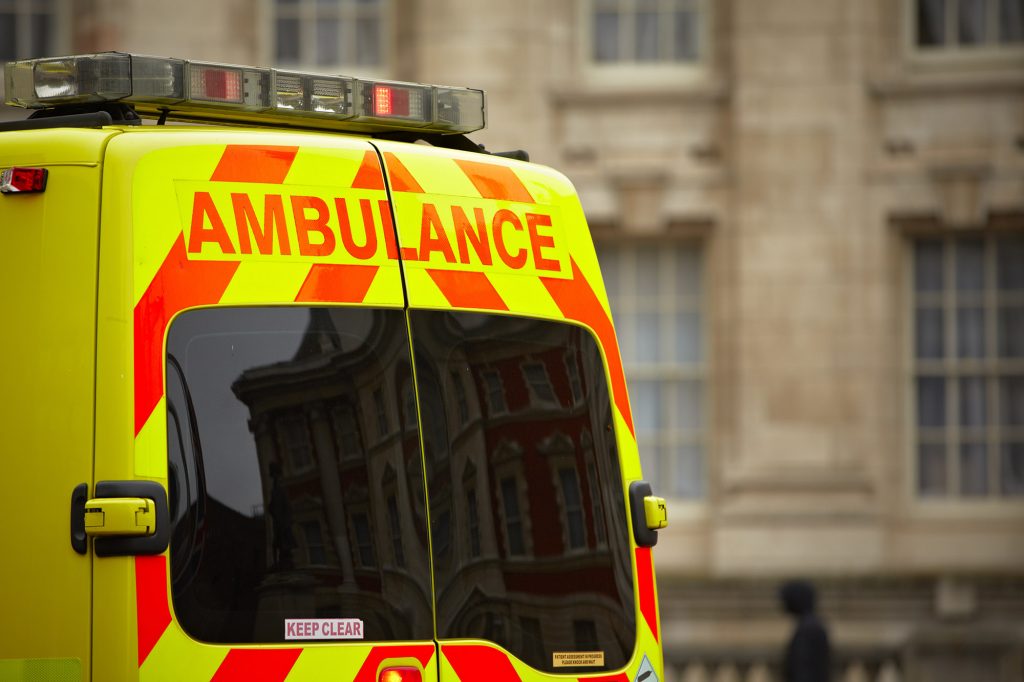Pages On: NHS Claims
The NHS is an excellent organisation that saves so many lives. Having such a resource allows the people of the UK to not constantly fret about choosing between their finances and their health. However, that does mean the NHS is under routine strain from the vast quantities of patients, as well as mismanagement from higher up. Patients can often wait weeks before seeing a GP, and months, sometimes even years, for referrals. In the event of serious illness, this can be too late to combat. There are also the chances of surgical mistakes, misdiagnosis, birth injury and a myriad of other types of medical negligence. If the NHS has failed in its duty of care to you, and you have suffered as a result, you may be entitled to claim compensation.

Plans to improve maternity care after 124,000 reported incidents
Posted: 15 March 2016
Posted in: Birth Injury, Medical Negligence, NHS Claims
A report published by NHS England has called on staff in maternity units to learn from mistakes that have been identified by auditors, with a view to improving care provided in the units. It was found that over 124,000 reports of incidents in maternity units were submitted in 2015. The figures reveal an average of around 340 mistakes were being made daily in maternity units. These include incorrect epidurals being administered, foetal heartbeats not being monitored correctly or caesareans being carried out too late in cases of emergency deliveries. It was found that 351…
Read More
Damning report on how medical complaints are handled
Posted: 9 February 2016
Posted in: Medical Negligence, NHS Claims
Healthwatch Cumbria and Cumbria Health Security committees have published a damning report into how medical complaints are handled in their area. It has been found that Cumbrian patients were afraid to make complaints and that their complaints were handled “defensively” by health staff. It was also found that complaint procedures were complex and that there was a general lack of understanding amongst staff of the procedures. NHS complaint handling was also found to be lagging behind recommended targets. The report has called for health and social care workers across Cumbria to adopt a…
Read More
London’s Ambulance Service under ‘special measures’
Posted: 29 November 2015
Posted in: Medical Negligence, NHS Claims
Further to an inspection carried out in June by the Care Quality Commission (CQA), London’s Ambulance Service NHS Trust has become the first to be put into special measures in an attempt to attract aid to improve its failing service. The inspectors found the Service to be failing in the following areas: Staff shortage and poor staff trainingInappropriate levels of staff supervision at senior levelsResponse target times being missedLow staff morale with individuals complaining of harassment and bullyingHigh levels of frontline vacancies The Trust, which until 2014 was ranked as…
Read More
Swine flu vaccine compensation cases blocked
Posted: 25 September 2015
Posted in: Medical Negligence, NHS Claims
When doctors realised that the sharp rise in narcolepsy cases was related to the swine flu vaccine Pandemrix, they immediately withdrew it. Now, however, the government is being bombarded by several medical negligence compensation claims, which government lawyers are attempting to block. The Pandemrix vaccine was produced by pharmaceutical company GlaxoSmithKline (GSK) and was administered to over 6 million people in Britain and millions across Europe during 2009-10’s swine flu pandemic. A 12-year-old boy, who remains anonymous, received a compensation payout of £120,000 in June after he was left severely…
Read More
Unsafe level of senior doctors and desperate shortage of nurses
Posted: 8 September 2015
Posted in: Medical Negligence, NHS Claims
Recent inspections have discovered the dangerously low levels of senior doctors within the North Cumbria University Hospitals Trust. The health trust, criticised over its high death rates, was one of the 11 trusts placed under ‘special measures’ in 2013. The Care Quality Commission (CQC) said that while improvements have been recognisable, staffing issues remain unaddressed by the trust. Inspections were carried out at West Cumberland Hospital in Whitehaven, Cumberland Infirmary in Carlisle, and the midwifery-led birthing service at Penrith Community Hospital between 31 March and 2 April this year. Inspectors…
Read More
NHS negligence responsible for baby 1300 deaths
Posted: 29 June 2015
Posted in: Birth Injury, Medical Negligence, NHS Claims, Wrongful & Accidental Death
Official figures have revealed that around 1,300 babies were injured or killed as a result of medical negligence within the NHS last year. Medical staff errors made during birth, which led to injury or death, cost the NHS £1b last year alone. Figures showed that one in four claims made against the NHS were successful, with the largest claims going to babies left brain damaged as a result of negligence. Mervi Jokinen from the Royal College of Midwives said that more should be done to protect mothers and children. She…
Read More
Norovirus outnreak closes ward
Posted: 2 May 2015
Posted in: Medical Negligence, NHS Claims
Ward 3 of Walsall’s Manor Hospital has been closed until at least Sunday following an outbreak of the Norovirus. A bay on Ward 10 has been closed due to the same outbreak and visitors with symptoms of sickness have been asked to stay away to stop the bug spreading. Any visitors with friends or relatives were requested to stay away, even if they were in different wards, if they had experienced diarrhoea or sickness in the previous three days. Head of Infection Control for Walsall Healthcare NHS Trust, Joanne Ellison, has stated,…
Read More
NHS complaint system ‘inadequate’
Posted: 7 February 2015
Posted in: Medical Negligence, NHS Claims
A recent review carried out by the office of the health service ombudsman found that over 40% of NHS investigations into patient complaints do not meet standards. The review looked at a total of 150 individual cases into allegations of avoidable harm or death, of which 61 had failed to handle the complaints adequately. Alongside these individual cases, the review looked at statements, records, the quality of the investigations and the evidence relied on. Ombudsman, Dame Julie Mellor, is due to appear in front of the public administration select committee…
Read More
Two hospitals ban paramedic for whistleblowing
Posted: 18 January 2015
Posted in: Medical Negligence, NHS Claims
Two hospitals in Worcestershire have banned a whistleblower paramedic after he spoke out about severe overcrowding in their accident and emergency departments. Stuart Gardner, of the West Midlands Ambulance Service, had the ban imposed on him after detailing the extreme pressure that the A&E units were dealing with, describing them as “not safe” to the BBC. Following this, the chief operating officer (COO) of Worcestershire Acute Hospitals NHS Trust told him that he was no longer welcome at either of its hospitals. It was heard that the ban was placed…
Read More
Potentially high risk hospital still needs to make improvements
Posted: 26 November 2014
Posted in: Medical Negligence, NHS Claims
Four months after a hospital was rated “potentially high risk”, inspectors found that there is still a lot of room for improvement. A Care Quality Commission report rated Kettering Hospital as on the verge of being ‘high risk’, with the report flagging up problems regarding the A&E department, the medical care being provided (especially for the elderly), and surgical procedures. Four months later, inspectors have identified improvements, but said that the trust is still not providing a particularly high standard of care to patients. The initial inspection was carried out in…
Read More
Doctor was unaware patient had spleen rupture
Posted: 23 September 2014
Posted in: Medical Negligence, NHS Claims, Wrongful & Accidental Death
A Stafford Hospital doctor discharged a patient with a ruptured spleen despite a paramedic classing his condition as “life-threatening”. 20-year-old John Moore-Robinson had gone to Stafford Hospital after he fell off his bike near his home in Sileby, Leicestershire. Even though the telecommunications engineer informed the hospital that he had a life-threatening condition prior to his arrival, the doctor that dealt with him said he only had bruised ribs and discharged him the following day. Mr Moore-Robinson died at home a few hours later. The doctor that treated Mr Moore-Robinson, Dr Girish…
Read More
NHS 111 call handling failings
Posted: 25 April 2014
Posted in: Medical Negligence, NHS Claims
The chief executive of The South Western Ambulance Service has admitted to failings surrounding the handling of 111 calls. He said the service has “failed to deliver the performance required”, particularly in the handling of weekend calls. In one week alone, nearly 900 people seeking non-emergency advice in Cornwall, Devon, Dorset and Somerset abandoned their calls due to their poor handling by call staff. The trust is currently reviewing their staff as a result. Chief executive Ken Wenman said that great changes have to be made to ensure that callers are…
Read More
‘Do something different’ to improve NHS care
Posted: 3 March 2014
Posted in: Medical Negligence, NHS Claims
As part of NHS Change Day, thousands of people working for the NHS across the country are ‘doing something different’ for the day to improve the care provided by the NHS. This idea came about after two doctors attended an NHS leadership course, which sparked the idea of introducing an NHS Change Day. This day is to help raise awareness and improve care standards within the NHS by encouraging its employees to ‘do something different’ for a day. 2013 saw 189,000 people pledging online as a result of NHS Change Day, with the…
Read More
NHS cash shortage 'harmful' to care standards
Posted: 9 February 2014
Posted in: Medical Negligence, NHS Claims
Figures released last week have highlighted that the cash shortage within the NHS is potentially harmful to care standards. Following the Stafford Hospital scandal last year, the NHS has been pushing to improve the level of care provided by the UK’s hospitals. Experts, however, say that financial pressures will make this exceedingly difficult. Inquiry chair Robert Francis QC said that it is unacceptable for hospital leaders to act like they can continue to improve the level of care without adequate funding. He said that hospital leaders have to be “frank” about the level…
Read More
Patient contracted hepatitis c from hospital
Posted: 28 January 2014
Posted in: Medical Negligence, NHS Claims
NHS Lanarkshire has apologised after a patient became infected with hepatitis C during their time at hospital. The health board said that they were unsure as to how the patient became infected with the blood-borne virus, but said that infection control procedures at their hospitals had been tightened as a result. The patient had been at Monklands Hospital in April 2012 when the virus was detected, alongside seven other patients who were all checked for the infection. Hepatitis C is an infection usually contracted through blood-to-blood contact, but can sometimes be transmitted…
Read More
Health secretary demands that NHS workers apologise for poor care
Posted: 13 January 2014
Posted in: Medical Negligence, NHS Claims
The health secretary, Jeremy Hunt, said that doctors and nurses must start apologising directly to patients if things to wrong. He said that a ‘culture of defensiveness’ has developed, which is no longer welcomed by the NHS. Doctors and nurses will be encouraged to be honest with patients when accidents occur, taking a step towards patients regaining trust in the NHS. It has been found that staff across England and Wales are reluctant to apologise to patients following medical negligence through a fear of admitting legal liability or ‘making the…
Read More
Needle left inside patient following surgery
Posted: 29 November 2013
Posted in: Medical Negligence, NHS Claims
Plymouth Hospitals NHS Trust has apologised for a recent incident involving a patient leaving surgery with a needle still inside them. It was discovered that, despite the patient having left the operating theatre at the end of the procedure, one of the surgical needles had been left under the patient’s skin. This follows a previous incident that took place at Derriford Hospital earlier in the month, whereby a naso-gastric tube – used for feeding and administering medication – was ‘misplaced’. Both of these accidents have been noted in a board agenda of…
Read More
Hospital fails to protect patients from Legionnaires’ disease
Posted: 6 September 2013
Posted in: Medical Negligence, NHS Claims
Basildon Hospital’s inability to control legionella bacteria has resulted in the deaths of two people since 2007, a court has heard. The Essex-based hospital has been criticised for their high mortality rates after a fatal legionella infestation killed two patients and infected six others over the last 6 years. The hospital “apologised severely” in January for failing to abide by the Health and Safety at Work Act, and was sentenced at Chelmsford Crown Court on Wednesday. The deaths of 74-year-old James Compton from Billericay (who died in 2007), and 54-year-old Raymond…
Read More
Ambulance trust responsible for death of baby
Posted: 21 August 2013
Posted in: Medical Negligence, NHS Claims, Wrongful & Accidental Death
17-week-old Bella Hellings’ parents blame the ambulance trust for the death of their child, after an ambulance took 26 minutes to reach the home following their 999 call. A report has found that the ambulance trust made a “significant number of operational errors” when handling the child’s case. Bella’s mother, Amy Carter, phoned 999 in March, after realising that Bella was having a fit and had stopped breathing. After an ambulance eventually arrived 26 minutes later, it proceeded to get lost on countless occasions during their return to West Suffolk…
Read More
Two never events are investigated in Royal Devon and Exeter Hospital
Posted: 5 July 2013
Posted in: Medical Negligence, NHS Claims
What the Department of Health calls “never events” have occurred twice in a hospital in Devon last month. One of the said ‘events’ involved a blood transfusion of the wrong blood type, and the other comprised an unneeded angiogram – whereby a tube is fed into the patient’s heart. Both of these uncontrolled, and particularly invasive, procedures have caused a lot of questions to be asked regarding the safety of the Royal Devon and Exeter Hospital’s service. Hospital managers have confirmed that they are currently investigating the reasoning behind these fatal errors. “Never…
Read More
Government tackles medical ‘never events’
Posted: 10 February 2013
Posted in: Medical Negligence, NHS Claims
A number of measures have recently been introduced by the Government in an attempt to make the NHS more transparent and accountable. In particular, the Government has focused on improving patient safety by reducing the occurrence of so called ‘never events’ throughout Britain’s hospitals. Never events Never events are serious patient safety incidents that, by definition, should never happen. These typically include incidents such as surgery being carried out on the wrong part of the body, or surgical equipment being left inside a patient after an operation. At the end…
Read More